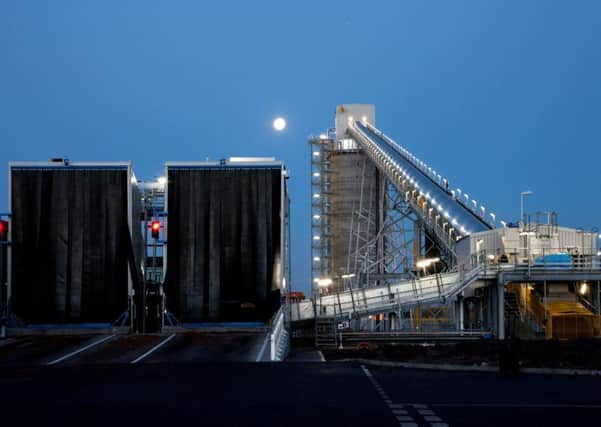Consumers '˜could face higher costs' if no deal on cargo customs post-Brexit


Shipping, port and ferry operators are concerned that increased checks on cargo by HMRC officials could cause a massive slow-down in the movement of goods and cause the so-called “stacking” effect seen from time to time on the motorway network around Dover to become a regular occurrence at Britain’s ports.
The slow-down in the processing of shipping would necessitate port operators investing in increased storage capacity, something operators say may have to be met from increased prices on industrial and consumer items.
Advertisement
Hide AdAdvertisement
Hide AdThe claim was made during a visit from Danish Shipping (formerly the Danish Shipowners Association) to Immingham this week in which they were briefed on some of the scenarios of Brexit by a number of the UK’s leading shipping bosses.
Jens Nielsen, Commercial Director of ABP, Alistair Eagles chief executive of ferry company Seatruck and Sean Potter, managing director of DFDS Seaways plc formed a panel to represent shipping and port activities across the UK.
The consensus from both the Danish and British delegations was that all parties wanted a smooth Brexit and there was a communal expectation that there will still be strong demand for trade between the UK and Europe.
However this was tempered with ferry operators calling for minimal hold ups at ports to prevent traffic backlogs.
Advertisement
Hide AdAdvertisement
Hide AdFollowing the summit Mr Eagles told The Yorkshire Post: “The real issue with delays at customs comes from space.
“There is not the space to store all of the trailers and containers. When you there are strikes in the South East or France, or issues with the weather, you see gridlocked traffic due to there not being any capacity for storage.
“Defra will also have issues with the checks on the suitability of foods. And then you have the issue of passengers.
“People underestimate the amount of goods that come into the UK via ferry.
Advertisement
Hide AdAdvertisement
Hide Ad“The country is reliant on the smooth flow of passengers and goods into the country, whether that is at Immingham or Hull or Liverpool.”
The briefing went on to highlight the need to be able to recruit sufficient manpower to run shipping and logistics businesses.
Current crewing arrangements see ferry crews made of personnel from many nations and there was a concern that a reduction in the pool of truck drivers would increase the number of unaccompanied trailers.
Mr Eagles said he and his contemporaries at rival organisations were working together to both raise awareness of the difficulties that increased customs operations could pose for the country and to press the Government to provide a settlement that would provide for these considerations.
Advertisement
Hide AdAdvertisement
Hide AdAnd while all who spoke agreed that hitherto the UK Government has been positively engaging with shipping and port operators in the lead-up to Brexit, other member state governments within the EU may not.
“Ultimately it is a two way process,” said Mr Eagles.
Last year a Centre for Policy Studies report said that Brexit could boost British ports and create up to 86,0000 jobs.
The Free Ports Opportunity argues Britain’s membership of the EU has held back growth and that the creation of “free ports” would be a huge opportunity for trade.
Free ports are areas that, although inside the geographic boundary of a country, are considered outside the country for customs purposes.
This means that goods can enter and re-exit the port without incurring usual import procedures or tariffs – incentivising domestic manufacturing.